#moscow centre
Quote
Immediately after the defection of Burgess and Maclean, the Centre instructed Modin to press Blunt, whom it knew to be under suspicion as Burgess's friend and former flatmate, to follow them to Moscow. Unwilling to exchange the congenial, prestigious surroundings of the Courtauld Institute for the bleak socialist realism of Stalin's Russia, Blunt refused. "I know perfectly well how your people live," Blunt told his controller, "and I can assure you it would be very hard, almost unbearable, for me to do likewise."
Christopher Andrew, The Defence of the Realm
#quote#quotation#Christopher Andrew#The Defence of the Realm#defection#Guy Burgess#Donald Maclean#Moscow Centre#Anthony Blunt#suspicion#Moscow#Courtault Institute#Stalin#Russia#that reminds me I must go see the new restored Courtauld
1 note
·
View note
Video
youtube
Каширская Плаза / KASHIRSKAYA PLAZA
#москва#трц#магазин#торговый центр#торговля#шопинг#russia#moscow#shoping#mall#shopping plaza#shopping centre
1 note
·
View note
Text
Russia earns $98B from fuel exports in first 100 days of Ukraine war
New Post has been published on https://www.timesofocean.com/russia-earns-98b-from-fuel-exports-in-first-100-days-of-ukraine-war/
Russia earns $98B from fuel exports in first 100 days of Ukraine war

Moscow (The Times Groupe)- Russia has earned billions from energy exports as Russian fossil fuel exports totaled $98 billion during the first 100 days of invasion of Ukraine, most of it going to the European Union.
As Kiev calls on the West to cut off all trade with Russia in an attempt to cut off the Kremlin’s financial lifeline, the Centre for Research on Energy and Clean Air (CREA) released its report on Monday.
Earlier this month, the EU agreed to stop the bulk of Russian oil imports, which heavily rely on the continent. Though the bloc aims to cut gas shipments by two-thirds this year, an embargo is not on the horizon at the moment.
In the first 100 days of the conflict, the EU took 61 percent of Russia’s fossil fuel exports, worth about $60 billion.
China imported $13.2 billion, Germany $12.7 billion, and Italy $8.2 billion.
The sale of crude oil accounts for 48.2 billion dollars of Russia’s fossil fuel revenues, followed by the sale of pipeline gas, oil products, and liquefied natural gas (LNG).
Russian exports plummeted in May due to the conflict in Ukraine, but the global increase in fossil fuel prices continued to fill the Kremlin’s coffers, with export revenues reaching record highs.
CREA reports that Russia’s average export prices were 60 percent higher than last year.
China, India, the United Arab Emirates, and France have increased their purchases from Moscow, according to the report.
“With the EU considering stricter sanctions against Russia, France has increased its imports to become the world’s largest buyer of LNG,” says CREA analyst Lauri Myllyvirta.
Since most of these are spot purchases rather than long-term contracts, France is consciously deciding to use Russian energy in the wake of Moscow’s incursion of Ukraine, Myllyvirta added.
He called for an embargo on Russian fossil fuels to “align words and actions”.
#analyst Lauri Myllyvirta#bulk of Russian oil imports#Centre for Research on Energy and Clean Air (CREA)#eu news#European Union#latest News#Moscow's incursion of Ukraine#russia news#Russia Ukraine War#Russia's fossil fuel revenues#Russian fossil fuel exports#The Times Groupe#Times Of Ocean#ukraine news#Unravel News#world news
0 notes
Text
Russia gave her a harsher sentence for placing stickers in a grocery store then they do men who kill women.
17 Nov 2023
Russian artist Alexandra Skochilenko has been sentenced to jail for seven years after being found guilty of spreading “false information” about the Russian military by replacing a handful of supermarket price tags with messages criticising the war in Ukraine.
The 33-year-old, known as Sasha, is one of thousands of Russians to be detained, fined or jailed for speaking out against Moscow’s invasion of its neighbour amid an escalating crackdown on free speech and opposition to President Vladimir Putin.
Skochilenko was arrested in her native St Petersburg in April 2022, after an elderly customer at the supermarket found the slogans on the price tags and notified the police.
“The Russian army bombed an arts school in Mariupol. Some 400 people were hiding in it from the shelling,” one read, in reference to Russia’s brutal siege of the southern Ukrainian city. Another said, “Russian conscripts are being sent to Ukraine. Lives of our children are the price of this war.”
Judge Oksana Demiasheva delivered the verdict on Thursday hours after Skochilenko, who has a congenital heart defect and coeliac disease, had made a final statement to the court, asking for compassion and to be set free.
As well as the prison term, the artist was banned from using the internet for three years.
Skochilenko, wearing a colourful T-shirt decorated with a large red heart, reacted with shock to the sentence, covering her face and wiping away tears.
Supporters shouted “shame” and “we’re with you Sasha”, the AFP news agency reported.
Skochilenko’s lawyers left without giving any comment.
Skochilenko’s arrest came about a month after authorities adopted a law effectively criminalising any public expression about the war that deviated from the Kremlin’s official line.
Human rights group Memorial – now banned in Russia – said police spent 10 days interrogating supermarket staff and inspecting security camera footage before arresting the artist.
“They sometimes give less for murder than for five price tags in a supermarket,” Boris Vishnevsky, a politician linked to the opposition Yabloko party, told AFP.
“Hopefully, someday, the pendulum will turn the other way.”
Skochilenko was accused of committing what the state prosecutor described as a serious crime out of “political hatred” towards Russia. He had asked for her to be jailed for eight years.
Skochilenko admitted to swapping the tags but denied that the text written on them was false. She said she was a pacifist who valued human life above all else.
“How weak is our prosecutor’s faith in our state and society if he thinks our statehood and public safety can be ruined by five little pieces of paper?” she said in court.
“Everyone sees and knows that you are not judging a terrorist. You’re not trying an extremist. You’re not even trying a political activist. You’re judging a pacifist,” she said.

Skochilenko’s friends and supporters said the verdict was a disgrace [Olga Maltseva/AFP]
Amnesty International condemned the verdict.
“Her persecution has become synonymous with the absurdly cruel oppression faced by Russians openly opposing their country’s criminal war,” it said in a statement.
Memorial has designated Skochilenko a political prisoner and has launched a campaign calling for her release.
She has already been in detention for nearly 19 months, meaning that her overall term will be reduced by more than two years, since every day served in a pre-trial detention centre counts as 1.5 days of time served in a regular penal colony.
But she has struggled in custody due to pre-existing health conditions, and her need for a gluten-free diet, according to her lawyers and her partner.
According to OVD-Info, a prominent rights group that monitors political arrests and provides legal aid, a total of 19,834 Russians have been arrested between February 24 2022, when Russia began its invasion, and late October 2023 for speaking out or demonstrating against the war.
Also on Thursday, opposition politician Vladimir Milov was convicted in absentia of spreading false information about the army and sentenced to eight years. Milov, who was once Russia’s deputy energy minister and is now an ally of imprisoned opposition leader Alexei Navalny, has left the country.
#Russia#Ukraine#Alexandra Skochilenko#Sasha#Speaking up against war is now spreading false information#Censoring a woman by banning her from using the internet#Shame#We're with you Sasha#Memorial#Speaking out against war is now called political hatred
102 notes
·
View notes
Text
Family/Laugh: May 12 & 13 Prompts from @calaisreno
The exterior nowheres that Sherlock inhabits can be charted by his footfalls as he wends his way through the precincts of temporary cities. The silent drift of assimilating interior nowheres, however, seems to leave no traces, even as he feels unseen changes taking hold. His suspension in the January North of a darkness that persists until late morning, and then quickly returns in the afternoon, intensifies his perception that he lives in a shadow-world, a lone dark figure extracted from the frozen rain that curtains his days.
The patterns he seeks to capture as he hunts amidst the ones and zeros of cyberspace are likewise intangible – extended solitary vigils as his fingers command the keyboard to winnow through the tangle of codes – as well as tangible, of meetings with the technological mix of people here at Tallinn’s crossroads: software developers seeking the leading edge at corporate labs, security experts at NATO’s Cyber Defence Centre of Excellence, the underground hackers who traverse the landscape of the digital realm’s hollow earth. Both the intangible and the tangible are intense efforts to spy glimpses of Moriarty’s covert presence in the spaces between the ones and zeros, summoning up the networks and nodes of the intersecting spheres of finance, and energy, and communications, as made manifest in trafficking, and counterfeiting, and hijacking, across the physical and human worlds.
He’s accumulated an abundance of leads, some he’s near-certain he understands, and others he’s yet to decipher – but it’s enough to reveal to him his next move on the chessboard: St. Petersburg. He’ll take the train from Tallinn, without needing to step out for border control, which is handled en route. He’ll be leaving Estonia under a new identity; he hopes to keep Lukas Sigerson in his back pocket for later uses, but it’s time to make his presence difficult to trace: it's time to step away from Mycroft’s grid. He’s left seemingly inadvertent clues to allow Mycrofts’s people to (think that they’re) following him, along a pathway that connects the nefarious doings of Mexican cartels involved in establishing meth labs in Nigeria for the Asian market. Their pursuit of him will be turned to good account in dismantling that nexus, even when they realize he is elsewhere.
St. Petersburg is a hive of hacking activity, the physical site of the infamous Russian Business Network, which catered to the needs of cyber criminals. It’s not surprising that it is the city where Vladimir Putin lived, received his education, and joined the KGB, as an agent in its foreign intelligence wing, before tunneling his way to Moscow. Sherlock doesn’t believe that there are many degrees of separation between Moriarty and the dark internet of Putin’s hellscape.
He arrives at the end of Tallinn’s usefulness on a Friday evening. As he packs up his kit in the office space he’s made homebase through a courtesy loan in deference to his Norwegian technology credentials, some of the younger workers have swept him up into their murmurating flock as they celebrate the coming weekend in search of alcohol, bar food, and music. In London, Sherlock would have begged off such a request, were anyone intrepid enough to suggest it, and he would have been unperturbed at whatever anyone might think. But he’s not Sherlock, he’s Lukas, at least for a short while longer, and although his persona is reserved, businesslike and uninclined to make small talk, Lukas possesses an average quantity of affability; and remaining unobtrusive is best accomplished by being amidst the motions of others, rather than making himself conspicuous by setting himself off from the norms of sociality.
He did not, however, anticipate the karaoke session, which is putting a severe strain on the bonhomie he is channeling to Lukas, as it’s clear that he’s going to need to accede to accepting a turn in the spotlight, lest he put a damper on the good spirits of his companions. He nevertheless protests with a smile, holding out his hands, but any input he might have been able to exert on the decision-making disappears, when two of his impromptu friends conspire to tug him toward the microphone, explaining that all three of them will venture forth together, with a song they insist is dead simple to sing, and that the well-lubricated crowd will be delighted to join in with them in belting out the familiar refrain.
Which is how he finds himself being carried along within a punchy, melodic stream that turns out to be excruciating emotionally, as the verses unfurl. He listlessly despairs, marooned, a hollowed-out laugh echoing inside his head in response.
. . . When I'm lonely, well, I know I'm gonna be
I'm gonna be the man who's lonely without you
And when I'm dreamin', well, I know I'm gonna dream
I'm gonna dream about the time when I'm with you.
When I go out (when I go out), well, I know I'm gonna be
I'm gonna be the man who goes along with you
And when I come home (when I come home), I know I'm gonna be
I'm gonna be the man who comes back home with you
I'm gonna be the man who's comin' home with you . . .
He’s exasperated at the universe conspiring to keep him unsettled, to deny him the solace of alone protecting him. He fears that he is fated to have any social contact whatsoever somehow conjure home and reminders of John.
The song ends to raucous cheers, and the enthusiasm surges on, and he’s being importuned to name a new song of his own choice before being allowed to return to the table. He looks at the smiling faces helplessly, immobilized by the churning cacophony playing hide-and-seek inside his guts, incapable of conjuring up the simplest of answers. Undeterred, they jolly him along, prompting him to think of a film he’s recently seen, or club he’s been to, or a favorite television show. At the latter suggestion, his mind does slightly slip free, and there is John again, teasing Sherlock into watching another of his favorite shows, Sherlock pretending to be annoyed at being consigned to such a fate. He turns to the young people, and raises his voice to speak into the nearest person’s ear to be heard over the noisy crowd, and says with a question in his voice, Peaky Blinders? He seems to have pleased them, as they fiddle around to pull the selection, bouncing in high spirits and punching their fists into the air, as the music starts, a bell ringing out, and the slithering deep tones speaking of the edge of town, of secrets in the border fires, of a gathering storm -- and a tall handsome man, in a dusty black coat, with a red right hand.
As Sherlock listens to the song unspool, his mind wanders back to the show's themes, reminding him of a line of thought he’d been considering the last few days – that to focus singularly on Moriarty and faceless confederates is not quite the right way to conceptualize the dead man's web: that there must have also been family members in leading positions, positions of trust.
One of the deep divides between himself and Mycroft originated in Sherlock’s refusal in uni to agree to work for SIS. Mycroft knew that he would never be able to trust completely any of the professionals who worked for him – after all they are spies working for money. To be sure, he wanted Sherlock to sign on to be able to appropriate his intelligence, but even more compelling was the fact that never having to question the loyalty of a brother would have made him an asset par excellence. Mycroft considers getting what he wants to be an inviolable law of the universe, and Sherlock doesn't think his brother will ever be able to truly forgive him for the rejection . . . especially given Sherlock's devotion to the inferior endeavors of dedicating himself to a life of metropolitan crime-solving.
Family; family is what matters.
A Moriarty is gone; but there are other Moriarties yet to be unearthed.
........................................................
@calaisreno @totallysilvergirl @friday411 @peanitbear @original-welovethebeekeeper @helloliriels @a-victorian-girl @keirgreeneyes @starrla89 @naefelldaurk
@topsyturvy-turtely @lisbeth-kk @raina-at @jobooksncoffee @meetinginsamarra @solarmama-plantsareneat @bluebellofbakerstreet @dragonnan @safedistancefrombeingsmart @jolieblack
@msladysmith @ninasnakie @riversong912 @dapetty
.............................................................................
36 notes
·
View notes
Text
Livable Streets in China

In 2019, there were almost one billion passenger-trips on public transit in the US. This is roughly the same number as that of Tianjin, a city in China with only 13 million people. China as a whole has more than this, the USA's total yearly number of passenger-trips, every single day. Evidently, when it comes to transit infrastructure, China's doing something right.
I'll note that I'm only talking about urban transit, here - China's vast high-speed railway network is already well discussed, and fills a space occupied, in the US, by domestic airline flights. When it comes to urban public transport, China is king. China has the longest metro system in the world, in Shanghai, with 400 stations and 800 kilometers of track. China also has the second, third, fourth, fifth, and sixth longest metro systems - in fact, the only metro system in the top ten not in China is the Moscow Metro, built by the USSR - and half the size of Shanghai's.
Still, there's room for improvement! The Central Urban Work Conference convened in 2015, the first since the beginning of opening up, marked a paradigm shift in urban design. China's qualitative change, from a rural to an urban country, is a recent transition, and it takes time for its effects to equalise. Before discussing the most advanced leaders of China's urban drive towards livable streets - which are literally tearing up highways to build parks instead - it might be useful to get a broader view.

The city of Zhuzhou, in Hunan province, is a small, third-tier city of only a million people. Being a third-tier city, its situation is different from the first- and second-tier cities, who developed, and have been strongly introduced to, new urban design paradigms. The city's rapid motorisation impacted the vitality of its urban centre, deterring street-front social interaction and general livability. The city government considered this a large issue, and began moving funds away from highways and road expansions, and towards the renovation of smaller streets. Now, for context, in this scenario of unchecked motorisation, 78% of Zhuzhou's residents still travel by walking, cycling, and taking public transit.
When it came to Zhuzhou's approach to these issues, it was one that comprised of many approaches touted internationally. Streets are thinned, and given chicanes to reduce car speed. Drivers are able to see their speed more clearly on thinner streets, and, psychologically, feel unsafe driving at high speeds. Sharp corners and dog-legs are built onto streets, to physically ensure slower speeds, especially at intersections and crossings. Slip lanes are removed, and islands are added to pedestrian crosswalks. Pedestrian crossings, rather than dipping down into the street, remain level, physically forcing cars to slow down as they make their way up, like a speed bump, and enforcing the perception that the cars are infringing into a pedestrian space.


Some approaches were more unique, and integrated building design. Part of the city's design manual focused on the somewhat-common but less discussed feature, of aspect ratio - the vertical height of buildings for a given horizontal space, important for avoiding the depressing, flat expanses of tarmac that make up US sprawl. Another focused on the integration of pedestrian overpasses and underpasses into buildings, and the enforcement of building overhangs and arcades that provide a sheltered space.


These are the changes put into motion in third-tier cities, meeting and exceeding the beacons of urban design often presented in the west. When it comes to first-tier cities like Shanghai, the award-winning Shanghai Street Design Guidelines are realising advanced, human-centred urban design for greater numbers of people than ever before.
873 notes
·
View notes
Text
"If you take school and university textbooks, which list nations, it is written there that the French were born in the early Middle Ages, the English, the Poles, they all lead from there. And for some reason, we [Ukrainians] need to have origins from the 14th century. The question is, why? Was there any hiatus between the 12th and 15th centuries? No. The population has not changed...
They say, "Tatars used to go here"! The Tatars used to go here, but the Tatars did not sit down here because the Tatars and Mongols needed the steppe. They imposed taxes, and they themselves fled into the steppe.
It should be said that there is no hiatus, which Moscow archaeologists insisted on, and the absence of this hiatus was proven by Soviet archaeology in the 60s and 70s, that there was no depopulation here. Kyiv is an ancient Ukrainian city, just as Kyivan Rus is an ancient Ukrainian state. Why? Because general historical laws. The first stage of European ethnic groups existed - this is the tribal stage. From the 500s to the 900s, about 400 years, all these ethnic groups - the English, the French, the Poles, the Ukrainians, the Serbs - did not have a single ethnonym, they consisted of separate tribal unions. The tribal stage of existence is the entire early Middle Ages. The English consisted of Angles, Saxons, and Jutes. The Poles consisted of five tribes - the Kashubs, the Mazovshans, the Slenzyans, the Vislyans, and the Polyans. And from these tribes five dialects are now left in the Polish language. And the Ukrainians consisted of Polyans, Drevlians, Volhynians, Ulychis, Carpathian Croats... Europe is maturing somewhere in the year 900-1000, and all these peoples are creating their first aristocratic national states. The first English kingdom arises in the year 1000, around this time, the first Polish kingdom of the Piast dynasty arises. At the same time, the Prague principality of the Czechs emerged, at the same time, the Serbian state and Rus, with its centre in Kyiv, emerged. That is, this is a universal regularity. Since all these states that I have listed are considered Polish, English, Serbian or Spanish states in the medieval stage of development in the textbooks of these countries, we have no reason to doubt the Ukrainianness of Rus. Who wants to doubt - please break these universal laws.
You know that Meshko the First lived in the time of Volodymyr the Holy, and his son Boleslav the Brave - in the time of Yaroslav the Wise. So, Meshko the First and Boleslav the Brave are Polish kings, but try to tell someone that Volodymyr the Holy or Yaroslav the Wise are Ukrainians. You will be spit on! Moreover, by the Ukrainians themselves. And, by the way, all the walls of Sophia of Kyiv are covered with Ukrainian texts, Serhiy Vysotsky also spoke about this. Before his death, he called me and told me that there were Ukrainian texts there, but it was impossible to write about it. In the book he published, all this is translated into Russian.
What elements are there on the walls? Наприклад, клична форма української мови – «Петре», «коню», «князю», що питомо українське, в російській мові цього немає. Дієслова на «-ти» – іти, ходити. Дієслова на «-мо» – живемо, ходимо. Давальний відмінок однини чоловічого роду – князеві, Петрові, Іванові.
Vasiliy Klyuchevskii, a great russian patriot, when asked what language the prince of Kyiv spoke, he said: the language that grandmothers speak in the bazaars in Kyiv now. There are a huge number of these proofs in this regard.
Agatangel Krymsky also wrote about these linguistic features. He has an article about what language was spoken in princely Kyiv. He composed a phrase from the words of the 12th century and accompanied it with the following words: no Moscow professor will understand this phrase, and any grandmother from the Kyiv bazaar will. The phrase sounded like this: «Кицька сидить на призьбі, доки її окропом з глека не злякають або хорти лови не влаштують».
So, summing up, princely Kyiv was as much Ukrainian as London was English, Gniezno was Polish, and Paris was French. These were not Ukrainians, Frenchmen, or Poles as they are now. Because it is an organism, and the organism develops. And these were Ukrainians, Poles, and Englishmen at that medieval stage of development."
Leonid Zaliznyak
62 notes
·
View notes
Photo
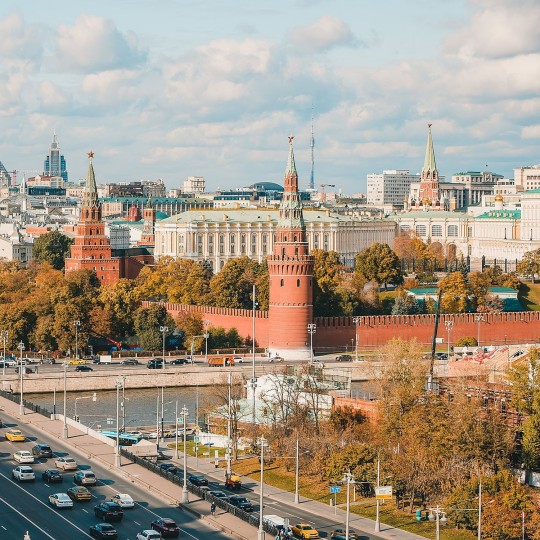
Kremlin
The Kremlin is a fortified complex located in the centre of Moscow, Russia, which is made up of towers, high walls, palaces, and cathedrals. Construction of the Kremlin began as early as the 12th century. As one of Russia's most famous landmarks, it has played a crucial part in Russia's history as the main seat of Russian royalty and government.
Continue reading...
38 notes
·
View notes
Text
A Ukrainian teen who was moved by Russian authorities from Russian-occupied Ukraine to Russia last year was told he could get drafted into Putin's pathetic army after he turns 18.
After an international outcry, Bogdan may finally be returned to Ukraine.
A 17-year-old Ukrainian who was moved from Ukraine to Russia found out recently he was facing the prospect of being conscripted into the army fighting against the country of his birth.
Bogdan Yermokhin, originally from the Ukrainian city of Mariupol, tried to return to Ukraine in March but was stopped by Russian border guards.
He is soon due to turn 18 and was ordered to report to a Moscow region draft centre next month.
But then his plight became public knowledge and after his lawyer appealed to President Volodymyr Zelensky for help, Russia appears to have had a change of heart.
Russian's children's commissioner Maria Lvova-Belova announced on Friday that he would soon be taken abroad to meet his cousin, and Ukraine confirmed the plan.
Bogdan Yermokhin was orphaned in 2014 and before Russia's invasion of Ukraine he lived with a foster family in the port city of Mariupol. The director of a technical college where he was studying became his legal guardian in 2021.
In 2022, Mariupol was seized by Russian forces after one of the bloodiest battles of the war, and Bogdan ended up in Russia. It remains unclear how or why he was moved.
Russia has been illegally transporting Ukrainian kids from occupied territories since not long after Putin's invasion began. This is banned by international law.
[I]n March 2023, the International Criminal Court issued arrest warrants for Ms Lvova-Belova and President Vladimir Putin. The ICC said Russia's aim was "permanently removing these children from their own country."
Bogdan Yermokhin was transferred first to the city of Donetsk in Russian-occupied Ukraine and later to a youth summer camp in the Moscow region with a group of 30 Ukrainian children, including one boy fostered by the children's rights commissioner herself.
The teenager was eventually put in the care of a local foster family and given Russian documents. He entered a college in Russia to continue his studies and Ms Lvova-Belova also claimed that he worked in summer camp aiming to "integrate" teenagers from Russian-occupied Ukraine.
Russia is losing population and the standard of living outside a few of the larger cities is plummeting. Kidnapping kids from Ukraine is one of the few options the Putin dictatorship has to slow down population implosion.
Ms Rudnitskaya argued that he was not at risk of being sent to fight in Ukraine. "He is a student," she said, adding that "new recruits do not take part in the Special Military Operation" - using Russia's official term for its full-scale war.
Maria Lvova-Belova agreed, accusing the media of "hype".
Russian authorities have frequently insisted that new recruits are not sent to the front line, but the BBC has established on multiple occasions that this has in fact happened.
Yep, it's been documented that not all of the members of Putin's dismal army in Ukraine are exactly "volunteers".
In April 2023, Maria Lvova-Belova announced at a news conference that Bogdan Yermokhin had tried to return to Ukraine on his own.
She said that Russian border guards had managed to stop him.
"We caught him on the border with Belarus," she announced. "We managed to stop him at the last minute."
Of course. Why on earth would anybody want to remain in Russia?
After a lot of bad publicity, indicted war criminal Maria Lvova-Belova is attempting to revise the narrative on Bogdan.
In her latest remarks on social media on Friday, the children's commissioner was adamant that up until October he had wanted to stay in Russia, and that Russian authorities had done nothing against his will.
"Now Bogdan's opinion on where he would like to live has changed and he plans to return to Ukraine."
Before his earlier failed attempt to leave Russia in March, at least one other Ukrainian teenager from Mariupol placed in a Russian foster family succeeded in returning to Ukraine.
Ukraine's human rights ombudsman, Dmitry Lubinets, said the boy, who he named Serhiy, had sought help online from Ukrainian chat bots in December 2022.
Bogdan Yermokhin was also active on social media, but he stopped posting under his name in March, at around the time of his attempt to leave Russia.
[ ... ]
Bogdan's Russian foster family and his former Ukrainian guardians have confirmed to the BBC that Russian authorities now consider him a Russian citizen, so he would have been obliged to serve in the army under Russian law.
But under international law issuing documents in occupied territories is illegal and Ukraine condemns the practice. This became one of the grounds for the ICC's arrest warrant for Maria Lvova-Belova.
As far as Ukraine and the rest of the international community is concerned, Bogdan Yermokhin remains a Ukrainian citizen, and the Russian military summons is illegal.
The Russian children's commissioner denies authorities have engaged in any illegal activity and Moscow rejected claims it impedes the return of minors to Ukraine.
However, its authorities insist only mothers or other close relatives can make their way to Russia in person to take their children back to Ukraine.
Hopefully Bogdan will be back home in Ukraine before long where he can recover from his ordeal in Russia.
#invasion of ukraine#bogdan yermokhin#russia kidnapping kids from ukraine#vladimir putin#maria lvova-belova#international criminal court#convention on the prevention and punishment of the crime of genocide#putin's shit army#russia's war of aggression#stand with ukraine#dmitry lubinets#похищение#геноцид#владимир путин#мария львова-белова#путин хуйло#путлер#путина в гаагу!#военные преступления#это ВОЙНА а не 'спецоперация'#руки прочь от украины!#геть з україни#будь сміливим як україна#деокупація#богдан єрмохін#дмитро лубінець#вторгнення оркостану в україну#слава україні!#героям слава!
32 notes
·
View notes
Text

New SpaceTime out Monday....
SpaceTime 20240401 Series 27 Episode 40
Strong magnetic fields at the edge of Milky Way’s supermassive black hole
A new image from the Event Horizon Telescope has uncovered strong organised magnetic fields spiralling around the edge of Sagittarius A* the supermassive black hole at the centre of our Milky Way Galaxy.







New studies show blue supergiant stars can be formed through stellar mergers
A new study has found that some of the brightest, hottest, and most luminous stars in the universe are created by the merger of two smaller stars.

Peering Into the Tendrils of a distant galaxy
The Webb space telescope has provided astronomers with a new view of a spectacular star forming region called NGC-604 deep inside the Triangulum Galaxy M-33.
Moscow sends a new crew to the International Space Station
A Russian Soyuz capsule has safely docked to the International Space Station as it flew 420 kilometres above the planet.





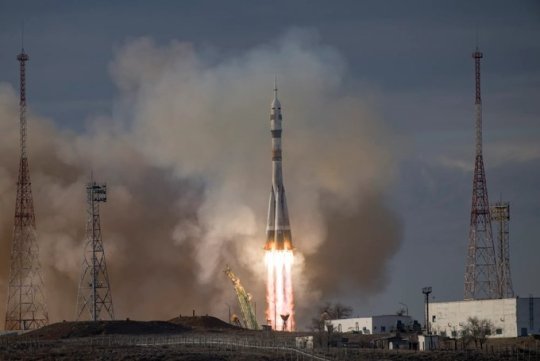



The Science Report
How spending less time sitting could help reduce blood pressure in people over 60.
Scientists map the genome of sugarcane.
It’s true, today’s music really isn’t as good as that back in the olden days.
Skeptics guide to why people believe in astrology
SpaceTime covers the latest news in astronomy & space sciences.
The show is available every Monday, Wednesday and Friday through Apple Podcasts (itunes), Stitcher, Google Podcast, Pocketcasts, SoundCloud, Bitez.com, YouTube, your favourite podcast download provider, and from www.spacetimewithstuartgary.com
SpaceTime is also broadcast through the National Science Foundation on Science Zone Radio and on both i-heart Radio and Tune-In Radio.
SpaceTime daily news blog: http://spacetimewithstuartgary.tumblr.com/
SpaceTime facebook: www.facebook.com/spacetimewithstuartgary
SpaceTime Instagram @spacetimewithstuartgary
SpaceTime twitter feed @stuartgary
SpaceTime YouTube: @SpaceTimewithStuartGary
SpaceTime -- A brief history
SpaceTime is Australia’s most popular and respected astronomy and space science news program – averaging over two million downloads every year. We’re also number five in the United States. The show reports on the latest stories and discoveries making news in astronomy, space flight, and science. SpaceTime features weekly interviews with leading Australian scientists about their research. The show began life in 1995 as ‘StarStuff’ on the Australian Broadcasting Corporation’s (ABC) NewsRadio network. Award winning investigative reporter Stuart Gary created the program during more than fifteen years as NewsRadio’s evening anchor and Science Editor. Gary’s always loved science. He studied astronomy at university and was invited to undertake a PHD in astrophysics, but instead focused on his career in journalism and radio broadcasting. He worked as an announcer and music DJ in commercial radio, before becoming a journalist and eventually joining ABC News and Current Affairs. Later, Gary became part of the team that set up ABC NewsRadio and was one of its first presenters. When asked to put his science background to use, Gary developed StarStuff which he wrote, produced and hosted, consistently achieving 9 per cent of the national Australian radio audience based on the ABC’s Nielsen ratings survey figures for the five major Australian metro markets: Sydney, Melbourne, Brisbane, Adelaide, and Perth. The StarStuff podcast was published on line by ABC Science -- achieving over 1.3 million downloads annually. However, after some 20 years, the show finally wrapped up in December 2015 following ABC funding cuts, and a redirection of available finances to increase sports and horse racing coverage. Rather than continue with the ABC, Gary resigned so that he could keep the show going independently. StarStuff was rebranded as “SpaceTime”, with the first episode being broadcast in February 2016. Over the years, SpaceTime has grown, more than doubling its former ABC audience numbers and expanding to include new segments such as the Science Report -- which provides a wrap of general science news, weekly skeptical science features, special reports looking at the latest computer and technology news, and Skywatch – which provides a monthly guide to the night skies. The show is published three times weekly (every Monday, Wednesday and Friday) and available from the United States National Science Foundation on Science Zone Radio, and through both i-heart Radio and Tune-In Radio.
#science#space#astronomy#physics#news#nasa#esa#astrophysics#spacetimewithstuartgary#starstuff#spacetime
15 notes
·
View notes
Text
The prospects of a united front preventing Donald Trump returning to power in the US looked a little bleaker this week.
Let’s be frank they weren’t great to begin with. To an outsider Joe Biden just seems to be too old to be a viable candidate. He doesn’t pass the first impressions test. Look at him and you do not see someone capable of serving another four years.
True, he won Michigan's Democratic presidential primary a few days ago– but he was hit by a significant protest vote from left-wing and Arab-American voters angry about his qualified support for Israel's war in Gaza.
And at this point that second cause for worry, and, frankly, panic kicks in.
The left urged registered Democrats to vote for the "none of the above" category to express their opposition to Biden's Israel policy – and about 100,000 did. Their votes represent a wider chunk of the electorate who could well stay at home or vote for minor Green or left-wing candidates and deny the Democrats key states.
In a deeply divided country with a warped electoral system that favours the Republicans, it does not take many voters abandoning the Democrats for Trump to retake power.
I wrote at the weekend about how the Trump example shows how hard it is to unite against a dictatorial threat. People, or to be fair, many people, cannot put aside their commitments and ally with men and women they profoundly disagree with for the greater good of defending democracy.
On the one hand, they cry that Trump is a fascist and white supremacist. On the other hand, they refuse to use all available means to stop him. Mainstream liberals do not moderate their demands to win over wavering conservatives. The far left sees the Biden administration as its true enemy.
The history of the struggles against Nazism are highly relevant to the dilemmas and the dangers we face today.
As Hitler began his rise to power at the end of the 1920s, the European far left was in the same place as a section of the modern US left.
The threat of fascism was as nothing when set against its hatred of moderates.
In 1928 the communist movement adopted one of the cruellest and stupidest policies in its history, which considering the history of Soviet communism was nothing more than a history of cruelty and stupidity was quite an achievement.
Partly because it helped Stalin in his internal power struggles in Russia, Moscow ordered all Europe’s communists to follow an ultra-leftist policy. They were told to denounce moderate leftists as “social fascists”, and fight them to the death.
Communism’s triumph was inevitable, the party line went. No compromise was possible with anyone who stood in history’s path. Reformists were opportunists and traitors. They were social fascists who were as bad as the Nazi gangs which were already gathering on Berlin streets.
Or perhaps they were worse….
For an argument that is still heard today held that, say what you like against them, at least fascists were honest in their way.
By contrast centre-leftists were traitors who had been “bribed by the bourgeoisie” to deceive the masses, as no less an authority than Lenin had said.
They were hypocrites who pretended to want change while watering it down. Nothing could be achieved until they were swept away.
When Stalin’s enemy, Leon Trotsky, who was hardly a moderate, warned that instructing left-wingers to fight other left-wingers was a sure way of allowing fascism to “ride over your skulls and spines like a terrific tank”, Ernst Thälmann, the leader of the German communist party, denounced him for his ‘criminal counter-revolutionary propaganda’.
The result was a disaster. The communists and socialists fought each other instead of the Nazis, making Hitler’s rise easier. Thälmann went along with Stalin’s categorisation of social democrats as “social fascists” until actual fascists came to power in Germany. They taught him the difference by holding him in solitary confinement for 11 years at the Buchenwald concentration camp, and putting him before a firing squad in 1944 and shooting him dead.
Today there are plenty of Thälmanns who believe with absolute certainty that the discredited centrist mainstream is the enemy.
Here is a columnist on the Washington Post greeting the Michigan result

As I emphasised in my previous piece, his stance is absolutely fine in normal circumstances. US leftists are perfectly entitled to refuse to support the Democrats if Biden’s behaviour outrages them.
But surely only enormous levels of delusion prevent them acknowledging that Trump is a threat to democracy. If he wins, the American republic may be so gerrymandered and its civil service so politicised that it will be a Herculean task to remove Trump and his successors. There are plenty on the US far right who cite the rigged democracy of Viktor Orban’s Hungary as their model and dream, after all.
The alternative is to build alliances and once again history is a guide,
Having seen that their previous policy of treating moderate leftists as Nazis had resulted in Hitler coming to power 1933, the geniuses running the Soviet Communist party decided on a U-turn. Henceforth communists were instructed to support “popular front” movements where everyone opposed to the fascist threat would be welcome.
Some of the most interesting US writers have reached back to the 1930s to find ways of dealing with Trump. In How Democracies Die the US academics Steven Levitsky and Daniel Ziblatt found an example in the little-known story of how fascism was stopped in Belgium in the 1930s.
Belgium might have gone the same way as fascist Italy or Nazi Germany. In 1936 far-right outfits —the Rex Party and the Flemish nationalist party, or Vlaams Nationaal Verbond (VNV)—surged in the polls, capturing almost 20 percent of the popular vote.
They challenged the historical dominance of three establishment parties: the centre-right Catholic Party, the Socialists, and the liberals.
The leader of the Rex Party, Léon Degrelle, was a classic far-right figure. A journalist (like Mussolini, and so many other believers in simple solutions) he would go on to become a Nazi collaborator in the Second World War.
Levitsky and Ziblatt wrote that, “the Catholic Party, in particular, faced a difficult dilemma: collaborate with their longtime rivals, the Socialists and Liberals, or forge a right-wing alliance that included the Rexists, a party with whom they shared some ideological affinity.”
Unlike the mainstream conservative politicians of Italy and Germany, who brought Mussolini and Hitler to power, or the mainstream Republican leadership who collaborated with Trump, the Belgian Catholic leadership declared that any deals with the far right could not be contemplated.
"Catholic Party leaders heightened discipline by screening candidates for pro-Rexist sympathies and expelling those who expressed extremist views. In addition, the party leadership took a strong stance against cooperation with the far right. Externally, the Catholic Party fought Rex on its own turf. The Catholic Party adopted new propaganda and campaign tactics that targeted younger Catholics, who had formerly been part of the Rexist base. They created the Catholic Youth Front and began to run former allies against Degrelle."
Right-wing Catholics knew that they must ally with socialists and liberals they normally deplore in a popular front. And it worked. The far right was beaten.
I think popular front politics are essential. But they are not easy or even particularly principled. Go back to the 1940s and you find George Orwell was utterly repelled by communists and conservatives allying to stop Hitler
He looked back with mockery on
“The years 1935-9 were the period of anti-Fascism and the Popular Front, the heyday of the Left Book Club, when red Duchesses and ‘broadminded’ deans toured the battlefields of the Spanish war and Winston Churchill was the blue-eyed boy of the Daily Worker.”
To Orwell, the idea of covering up the crimes of communists for the sake of the greater anti-fascist good was horrific. But that was what the left of the 1930s did. And that was what the British and American governments did during the Second World War. Defeating Hitler came first. They were prepared to forget about the millions Stalin killed until the war was over.
It's a hard choice. But in the circumstances US progressives face, it is an obvious one. There is no argument against making every necessary compromise to prevent a second Trump term. You will have no right to protest, if you do not.
17 notes
·
View notes
Text
Memorials to victims of Stalinist repression in Russia are disappearing or being vandalised amid increasing attempts to rehabilitate the Soviet dictator.
For the past nine years, more than 700 plaques have been put up in Russia and elsewhere, commemorating the final residences of people who died in Stalin's purges in the 1930s.
Since May, however, dozens have disappeared in several Russian cities, according to Oksana Matievskaya, who is part of the plaque project Posledniy Adres (last address).
Police are not investigating the issue and Ms Matievskaya believes this is no coincidence.
"The memory of the Soviet terror challenges the concept of the state always being right and is, therefore, inconvenient for the Russian authorities. Especially following the invasion of Ukraine," she said.
Millions of people described as "enemies of the people" were sent to Soviet labour camps, known as the Gulag, and 750,000 were summarily murdered during Stalin's Great Terror in the 1930s.
Other memorials are also being targeted.
At least 18 monuments to victims of repression as well as foreign soldiers who fought in World War Two have been reported stolen or vandalised since February 2022. Most are dedicated to Polish nationals.
In October, a brick memorial to a prominent Polish priest was torn down and destroyed in the city of Vladimir.
A concrete cross erected in Komi republic, in memory of Polish prisoners, was also found demolished. Police attributed its destruction to bad weather and declined to initiate criminal proceedings, local media said.
Soviet authorities executed hundreds of thousands of Poles after 1939. In 1940, 1.7 million were deported to Gulag camps in Siberia and Kazakhstan.
Alexandra Polivanova of civil rights group Memorial believes the damage was ordered or carried out by authorities because Moscow wants the Soviet Union to be perceived as a powerhouse rather than an oppressive state.
She suggests the government doesn't want Russians to know the truth about their tragic past, especially now that Russian soldiers have been accused of war crimes in Ukraine.
"The authorities try to erase the memory of the crimes of that empire to cover up or justify the crimes of this one."
This is taking place alongside a resurgence in Stalin's popularity.
In July, a survey by independent pollster the Levada Centre suggested that 63% of Russians had a favourable attitude towards the Soviet leader - his highest approval rating in 13 years.
The explanation behind his rising popularity is not certain but Russian propaganda justifying the war with Ukraine has also glorified its Soviet past.
And unlike memorials to his victims, those to Stalin have increased in number.
An investigative channel on social media site Telegram called "We can explain" says there are 110 Stalin statues in Russia - 95 erected during President Vladimir Putin's rule and at least four during the full-scale invasion of Ukraine.
Some Russians want even more. In August the private Russkiy Vityaz (Russian Knight) Foundation inaugurated an 8m-high statue of Stalin in the town of Velikiye Luki, and is collecting money for more.
Its website argues these monuments are crucial given that Russia is fighting "a real Patriotic war". The "Great Patriotic War" is how Russians describe the 1941-1945 war between the USSR and Nazi Germany. The Kremlin regularly compares Russia's invasion of Ukraine to World War Two.
Russkiy Vityaz, which is said to have been founded by the Russian Special Forces Veterans Association, has declined to comment on the reasons for its campaign.
52 notes
·
View notes
Text
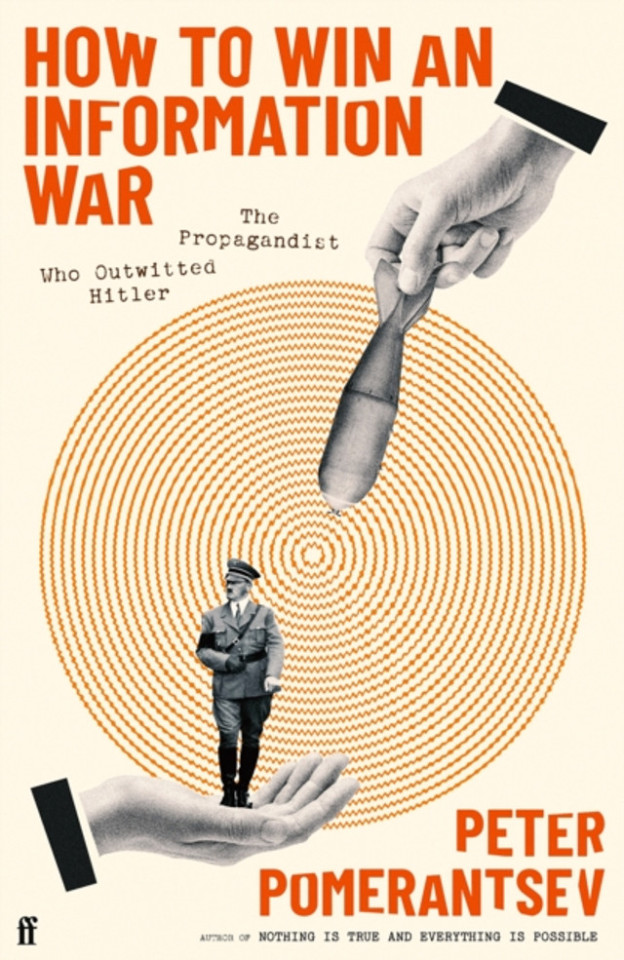
In 1941 a secret British radio station called on Germans to rise up against Hitler. Run by German exiles, it was explicitly left wing. The station’s target audience was “the Good German”. Its broadcasts were serious and idealistic: a ray of light amid totalitarian darkness. They were also a complete flop. With Nazi propaganda rampant, and Hitler’s armies seemingly invincible and on the march across Europe, few bothered to listen in.
It was at this point that Britain’s wartime intelligence services tried a more radical approach. That summer, a talented journalist called Sefton Delmer was given the job of beating the Nazis at their own information game. Delmer spent his childhood in Berlin and spoke fluent German. In the early 1930s he chronicled Hitler’s rise to power – flying in the Führer’s plane and attending his mass rallies – as a correspondent for the Daily Express.
Working from an English country house, Delmer launched an experimental radio station. He called it Gustaf Siegfried Eins, or GS1. Instead of invoking lofty precepts, or Marxism, Delmer targeted what he called the “inner pig-dog”. The answer to Goebbels, Delmer concluded, was more Goebbels. His radio show became a grotesque cabaret aimed at the worst and most Schwein-like aspects of human nature.
As Peter Pomerantsev writes in his compelling new study How to Win an Information War, Delmer was a “nearly forgotten genius of propaganda”. GS1 backed Hitler and was staunchly anti-Bolshevik. Its mysterious leader, dubbed der Chef, ridiculed Churchill using foul Berlin slang. At the same time the station lambasted the Nazi elite as a group of decadent crooks. They stole and whored, it said, as British planes bombed and decent Germans suffered.
Delmer’s goal was to undermine nazism from within, by turning ordinary citizens against their aloof party bosses. A cast of Jewish refugees and former cabaret artists played the role of Nazis. Recordings took place in a billiards room, located inside the Woburn Abbey estate in Bedfordshire, a centre of wartime operations. Some of the content was real. Other elements were made up, including titillating accounts of SS orgies at a Bavarian monastery.
The station was a sensation. Large numbers of Germans tuned in. The US embassy in Berlin – America had yet to enter the war – thought it to be the work of German nationalists or disgruntled army officers. The Nazis fretted about its influence. One unimpressed person was Stafford Cripps, the future chancellor of the exchequer, who complained to Anthony Eden, the then minister for foreign affairs, about the station’s use of “filthy pornography”.
By 1943, Delmer’s counter-propaganda operation had grown. He and his now expanded team ran a live news bulletin aimed at German soldiers, the Soldatensender Calais, as well as a series of clandestine radio programmes in a variety of languages. Delmer’s artist wife Isabel joined in. She drew explicit pictures showing a blonde woman having sex with a dark-skinned foreigner. Partisans sent the pamphlets to homesick German troops stationed in Crete.
Others who made a contribution to Delmer’s productions included Ian Fleming, the creator of James Bond, and the 26-year-old future novelist Muriel Spark. Fleming worked for naval intelligence. He brought titbits of information that made the show feel genuine, including the latest results from U-boat football leagues. Many Germans guessed the station was British. But they listened anyway, feeling it represented “them”.
Pomerantsev is an expert on propaganda and the author of two previous books on the subject, Nothing Is True and Everything Is Possible and This Is Not Propaganda. The son of political dissidents in Kyiv, he was born in Ukraine and grew up in London. During the 00s he lived in Moscow and worked there as a TV producer. Since Vladimir Putin’s 2022 invasion he has been part of a project that documents Russian war crimes in Ukraine.
Like Delmer, Pomeranstev has personal experience of two rival cultures: one authoritarian, the other liberal and democratic. He draws parallels between the fascist 1930s and our own populist age. The same “underlying mindset” can be seen in dictators such as Putin and Xi Jinping, and wannabe strongmen and bullies such as Donald Trump. “Propagandists across the world and across the ages play on the same emotional notes like well-worn scales,” he observes.
In Pomerantsev’s view, propaganda works not because it convinces, or even confuses. Its real power lies in its ability to convey a sense of belonging, he argues. Those left behind feel themselves emboldened and part of a special community. It is a world of grievance, victimhood and enemies, where facts are meaningless. What matters are feelings and the illusion propaganda lends of “individual agency”. Its practitioners bend reality. And – as with Putin’s fictions about Ukraine – make murder possible.
The book offers a few ideas as to how we might fight back. When horrors were uncovered in Bucha, the town near Kyiv where Russian soldiers executed civilians, Ukraine’s president, Volodymyr Zelenskiy, appealed to the Russian people. This didn’t cut through. Most preferred to believe the version shown on state TV: that Moscow was waging a defensive fight against “neo-Nazis”. It was a comforting lie that absolved Russians of personal responsibility.
Ukrainian activists hit a similar wall when they cold-called Russians and told them about the destruction caused by Kremlin bombing. Many called relatives in St Petersburg and other Russian cities to explain they were under attack. Typically, their family members did not believe them. “They really brainwashed you over there,” one said.
The activists had more success when they mentioned taxes or travel restrictions – issues that spoke to the self-interested “pig-dog”. Pomerantsev suggests that Delmer’s approach worked because he allowed people to care about the truth again, nudging them towards independent thought, while avoiding the pitfall of obvious disloyalty. He brought wit and creativity to his anti-propaganda efforts as well, turning his radio shows into bravura transmissions.
Pomerantsev makes an intriguing comparison between der Chef and Yevgeny Prigozhin, the Russian oligarch who in summer 2023 staged a short-lived rebellion against Putin. Two months later, Prigozhin died in a plane crash. The oligarch was a charismatic figure who roasted Russia’s generals for their incompetent handling of the war. He used earthy prison slang. It was this ability to communicate in plain language that made him popular – and a rival.
The book muses on whether Delmer was ultimately good or bad. Are tricks and subterfuge justified in pursuit of noble goals? It concludes that the journalist’s greatest insight was his understanding of his own ordinariness, and how this might be exploited by unscrupulous governments and rabble-rousing individuals. “He was vulnerable to propaganda for the same reasons we all are – through the need to fit in and conform,” Pomerantsev notes.
Daily inspiration. Discover more photos at Just for Books…?
17 notes
·
View notes
Text
Day 4 of Rosain Quivan’s Daily Logs
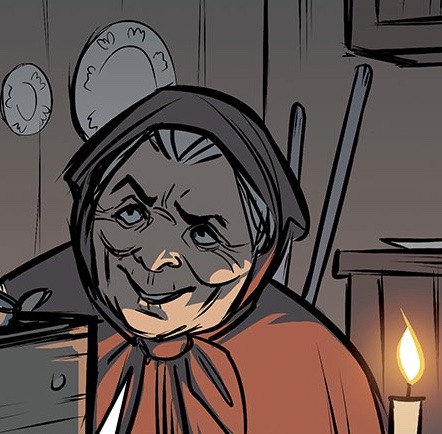
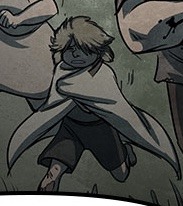
Started December 10th, 2023 at 8:24PM, Home
Finished December 10th, 2023 at 10:45PM, Home
Log #4
Author's Notes:
Originally, I planned for this short story to be only a two-parter. However, I got so carried away with writing backstory and researching facts about the Siberian Mountains and the USSR that I ended up having enough for two more parts. I hope you don't mind, but hey, at least that means more Heavy and Medic-centred interaction in the future, heehee!
I won't say much more, but I hope you enjoy this history-compliant log, as well as all the little references sprinkled here and there!
Title: King of Hearts (Part Two)
Fandom: Team Fortress 2 New Mexico, Badlands, Teufort City, The Cap Point
6:45PM, sometime during the Gravel War
"Well", Heavy begins, "it all starts when I first begin to live in Siberian Mountains with family, after escaping shoot-out in gulag."
Sniper nods, acknowledging the tough living conditions his friend had to endure to provide for his family. If he wasn't so curious about the toughened man's relationship with the team doctor, he would have diverged into another conversation entirely, mostly about survival tips. Ever since he was a child, had always dreamed of living in the mountains one day, just him and his camper van... but that is a story for another day.
"Anyway, our father had just been killed, and we had no money. We could not show face to society, or Soviets would put family back in gulag, so we head to Urals."
"Life was very hard on us, but Heavy had to protect family at all cost. We found small but safe community on far outskirt of Soviet city Magadan, where we meet with kind lady who let us settle in her late husband's house in exchange for manual work and company."
Heavy shifts in his chair and pulls a worn, leather wallet out of his pocket. Flipping through a few cards and other minuscule belongings, he eventually retrieves a small, faded picture.
"Here, this is lady", the robust Russian says softly, holding the photo out for the marksman to see and pointing at an aged figure. "Behind is woman's shoppe. If ever you visit Siberia, you must visit. Is very cozy."
The full image was of a youthful Heavy and his sisters and mother, alongside another woman wearing a red hood and light-brown coat. She seemed to be in her late 40's, but she would most likely be a lot older now, considering the aged quality of the picture. Everyone was smiling happily, with frosty snow cozily blanketing their feet. Behind them was a furnished wooden cabin, with the name "магазин джугджур", which roughly translates to "Jugjur Shop."
"Wow", the bushman half-whispered, "you must owe a lot to her if you kept a shot of her all these years."
Heavy smiles, putting the photo and the wallet back. "Yes, is true. Without her, Heavy and family would have probably frozen to death, or be captured and tortured in another city."
Sniper takes a sip of his martini. "I do have a question, though."
"Go ahead."
"How'd you make sure she wasn't a Soviet? She might'a been a secret agent and turned you in to the police, or maybe even captured you herself?"
"Ah, Heavy had same doubts too at time", he says, tipping the waitress as she brings him his drink.
"Luckily, lady was as anti-Soviet as I was. Her son, who was abroad in Moscow at time, was shot by Soviet officer during civilian massacre. It had ruined her husband, and he had committed suicide only a year after."
"The Soviets had ruined her life and her family, and she hated them with passion that is remarkable for such a nice lady. Maybe it was reason she was so eager to help us when she found out we were refugees."
"Oh. I see. I'm sorry to have brought that up, that must've been hard to recount," Sniper replies silently, slightly stunned and uncomfortable from the sudden change in mood that sprang from his question. Thankfully, Heavy senses his mood and puts his bottle of vodka down next to his martini.
"Do not worry, she is strong woman. Heavy's family takes good care of her, because she is part of us now", the giant says gently.
Sniper worried expression softens to a smile. "That's good to hear, mate."
"Anyway," Heavy continues, "family continues to live in mountains in secret for some time. We hunt bear, and... well, mostly bear, and we cut wood and help run shoppe with lady for a few years before only visiting once a month."
"Is nice, but eventually, family gets bored of seeing snow and killing bear all the time, you know?"
"Ah, yeah," the shartpshooter replies, though he doesn't quite know what to make of that, seeing as he's never done that before. Not minding, Heavy goes on.
"So, one day, Heavy takes family to go out and visit city of Magadan on mother's birthday. At time, I was blinded by boredom, and I did not consider how highly dangerous it was to bring family back to place where we could get imprisoned again."
"But, we were all hungry for something more than food, and it was special occasion after all, so we decided we would hide ourselves with thick coat hood and keep away from guards and populous area."
"At first, we were very excited to be back in a community again. We could see buildings, hear people talking everywhere, smell food that was not killed with fist. But sister Bronislava, who was still quite young at time, was most excited of us all, and she really loved being in city."
"She was always pointing at different stores we pass by, and her laughter when she heard choir boys singing near churches was infectious. However, her most favourite sight of all were boats at the port of Magadan."
"Even when she was very little, Bronislava loved travelling. She read many books on world, and her dream was to visit Paris one day and become pilot. Of course, she knew because of how Russia was at time that this dream could not be possible, but this did not stop her from dreaming."
"So," Heavy says, uncapping his vodka and pouring it into a glass "she was begging for us to go closer to port to see boat. 'Please, brother Misha, let us go on boat and sail!', she would say. But I said no- there were too many guards nearby and we would get caught for sure."
"Aw, can't let a little girl have some fun?," Sniper interrupts, teasing.
"If you don't want to be killed, then no," the towering man replies blatantly.
"Right, sorry, go on," Sniper says quickly, blushing.
"Sister Bronislava would not listen, though, no matter what Heavy or mother or sisters said to her. She would insist and insist, and we had to hold her back at one point so she would not run away herself, but she continued."
"She really wanted to go on the boats. Her whining turned to crying, and her crying turned to screaming, until it was certain a guard would catch us anyway because of how loud she was being. It was miserable and terrifying sight, and Heavy could already feel regret for having endangered and hurt family like this."
"But luckily," Heavy says with a chuckle, "her tantrum did not last very long. Just as family was about to leave and hide from inevitable imprisonment, a very interesting, travelling man tapped my shoulder from behind."
Just as Heavy utters the words, someone really does tap his shoulder. Heavy turns to meet their eyes, and immediately, he grins.
"Eavesdropping again, doktor?", he asks, pulling a chair for him to sit next to him and Sniper.
"Ooh, I simply couldn't resist! Mostly because I can still picture ze face you made when you turned around like a frightened deer", Medic exclaims, laughingly.
Heavy groans and rolls his eyes, whilst his two seatmates look at each other, both surprised and amused.
"The big, tough, scary Heavy, frightened? I'd never imagine such a thing!" Sniper chuckles, clinking his martini glass to cheers with the doctor's fizzing sparkling water.
"It was not as bad as doktor puts it, okay?", Heavy grumbles, eyes averted to their playful gazes. Still, you could tell by the way his face reddened and, again, the way his eyebrows lifted that it was, in fact, as bad as he put it.
"Whatever floats your boat, mein friend", Medic says, no pun intended. Sniper downs his martini in one go, signaling the waitress for another glass.
Wanting to change the subject, the flustered giant gets up to grab a deck of cards on a nearby table. He returns, shuffling the cards in his large, calloused hands.
"Let us continue story over game of cards, yes? I find that it will fit in well with next part."
To be continued in RQDL 5...
Credits: Team Fortress 2 by Valve
Image source: Team Fortress 2
Written by Rosain Quivan Cross posted on Amino ( Rosain Quivan )
#tf2#team fortress 2#tf2 heavy#tf2 sniper#tf2 medic#heavymedic#backstory#ussr#siberia#background characters#tf2 siberian shop lady#tf2 bronislava#tf2 heavy's mother#tf2 heavy's family#tf2 yana#tf2 zhanna#team fortress two#writing#writing practice#part 2#rosain quivan's daily logs#i accidentally ended up writing way more than expected on one part that now I need to make more ahhhhhh#more heavy medic stuff in future though so yay
37 notes
·
View notes
Text
A Russian military blog post posted on Thursday, December 21 at 11:33 Moscow time, has revealed the hitherto secret positions of all warships in the area which the Pentagon has announced for its OPERATION PROSPERITY GUARDIAN.
The fresh data and the open map (lead image) were not available when yesterday’s report was published at 09:32 Moscow time of Russia’s “two-track” strategy for opposing the US and NATO, and for protecting Russian oil shipments while the Houthi drone and missile operations are under way against Israel.
No Russian Navy vessel is in the area at present although Russian crude oil cargoes are moving through the Red Sea with Iranian and Houthi agreement. Because these ship movements are defying US and NATO sanctions, it has been decided in Moscow to negotiate safe passage with Iran and Yemen rather than deploy the Russian Navy to protect them. However, the new combined US and NATO operation, targeting the Houthis and their Iranian support and supply systems, increases the possibility of a direct American, allied, or false-flagged attack on a tanker carrying Russian oil.
In yesterday’s morning report, I indicated that “the current whereabouts of the [Chinese] warship group has not been reported in the open press.”
The Russian source map is now reporting that the Chinese Navy’s 45th Escort Task Force, comprising the Type-052 destroyer Urumqi, the Type-547 frigate Linyi, and supply ship Dongpinghu were at berth at the Chinese base at Djibouti as of Wednesday, December 20.
The Russian map also reveals that the Iranian vessel MV Behshad is in a standing position in the Red Sea (lead image, top left of map). According to the Russian source, it is operating as an electronic surveillance, command and control centre to monitor friendly state ship movements – Russian, Chinese, Indian – and also hostile vessels of the US, British and French navies, tracking their positions; and relaying the data to Iran and probably to shore positions in Yemen. Although US media and Pentagon statements accuse the Ansar Allah government in Yemen and Houthi forces of acting as Iranian proxies in the war against Israel, there has been no disclosure before now of this vessel in the Red Sea.
27 notes
·
View notes
Text
The first drag queen show I ever saw in my life was in Russia. It was 2008. They hired a group of drag queens from Moscow and brought them to a local disco in some lost Ural city. It was an spectacular show and I only regret having a poor level of Russian because I missed many jokes. This does not mean that gay people were happily out in the open, but in 2009 there was a movie about drag queens in Moscow, so it was still better allowed to do these things.
That year, I also met a gay man in his 40s. He was friends with a group of 40-50 year-old swingers and one of them happened to be my student of French. This gay man was the most interesting one in this party and I always regretted not being able to get his contact details, we got along immediately.
4 years later, in that same city, a friend of mine who had a gay friend invited us all out to the gay bar. It was far from the city centre, in some building with no lights outside. Compared to the very decorated and aesthetic bars, cafes and discos I had been in Russia, this one felt temporary. It had almost no decoration and no light work. Chairs were swimming pool chairs. It was half empty, and amongst the small vibrant young community there, a couple of man and woman in their forties caught my eye. They were quiet, just having some drinks looking at the ambiance. They looked like neighbours who decided to take a drink before going home in the closest bar, and it happened to be this one, they probably had a shared story with the rest of the clientele.
That same year, I went to Kazan and people knew there was a gay bar near a very recognisable place in the city center. I could never find it on my own and I knew I could only enter with an invitation. I have visited friends in the area later on, in one of my last trips to Kazan, around 2017? I was surprised to see two young lesbians hugging and snuggling in a hipster bar of the city center. A Russian gay roommate I had in Madrid around that time, where I also shared a flat with a very out Spanish lesbian girl, took months to even mention he liked boys. In Madrid. He was surprised that men would just hold hands in the street with their boyfriends.
From what a friend of mine has shown me from music in her teenage years, there was some possible turning point in the early 2000s where some gay men and some lesbian women made music and were relatively out in the public eye. Outside of Russia, we know of T.a.t.u., but there were many others. Several of the men casually married to women around 2010 and said that they were only gay for marketing purposes, not really gay. I particularly think of Shura (after min 1:15).
I was in Russia for the elections in, I think it was 2012. There were demonstrations and the Dean of the university where I worked gathered many teachers and told us that we should forbid our students to go demonstrate (it took him a long while because he started of saying "we must look out for them, let them know it's dangerous and they could end up in prison" but professors wouldn't agree, students were old enough to make their own decisions).
Over the past ten-fifteen years, many things have been happening in Russia, little by little. I think the last drop has been the war. Up until that moment, it was tiny changes here and there, but the war has been a big distraction so no need to hide anything anymore.
I have interpreted for Russian asylum seekers who left the country because they oposed the war and didn't want to go to the front. They were in associations agains the war and so, they were deemed not only desertors but extremists.
This past year, every month we have received Russian asylum seekers who were gay and/or opposed to the war. Many are going to Kazakhstan, Turkey or any other countries where no visa is needed. Many need to go through Georgia to be able to open a bank account that they can use in Europe while not being tracked by Russia.
I worry about my friends too. A mother of three with a son who soon will be 18, of age to go to the army and probably not the means to stop it. I worry about the friends who don't know what it means that so many people are being labeled extremists, those who are doing things "right", but how right can you do them until they're not right anymore because they're single or divorced or childless or working or unemployed or too young or too old?
I may have noticed these changes more than my friends because I have not been living in Russia in the long term, I came back every couple of years and things were harder. Moscow looks like a modern city, every couple of years looks more and more like Europe. But some things were never open to begin with and the window where they could have changed was a very small one.
21 notes
·
View notes